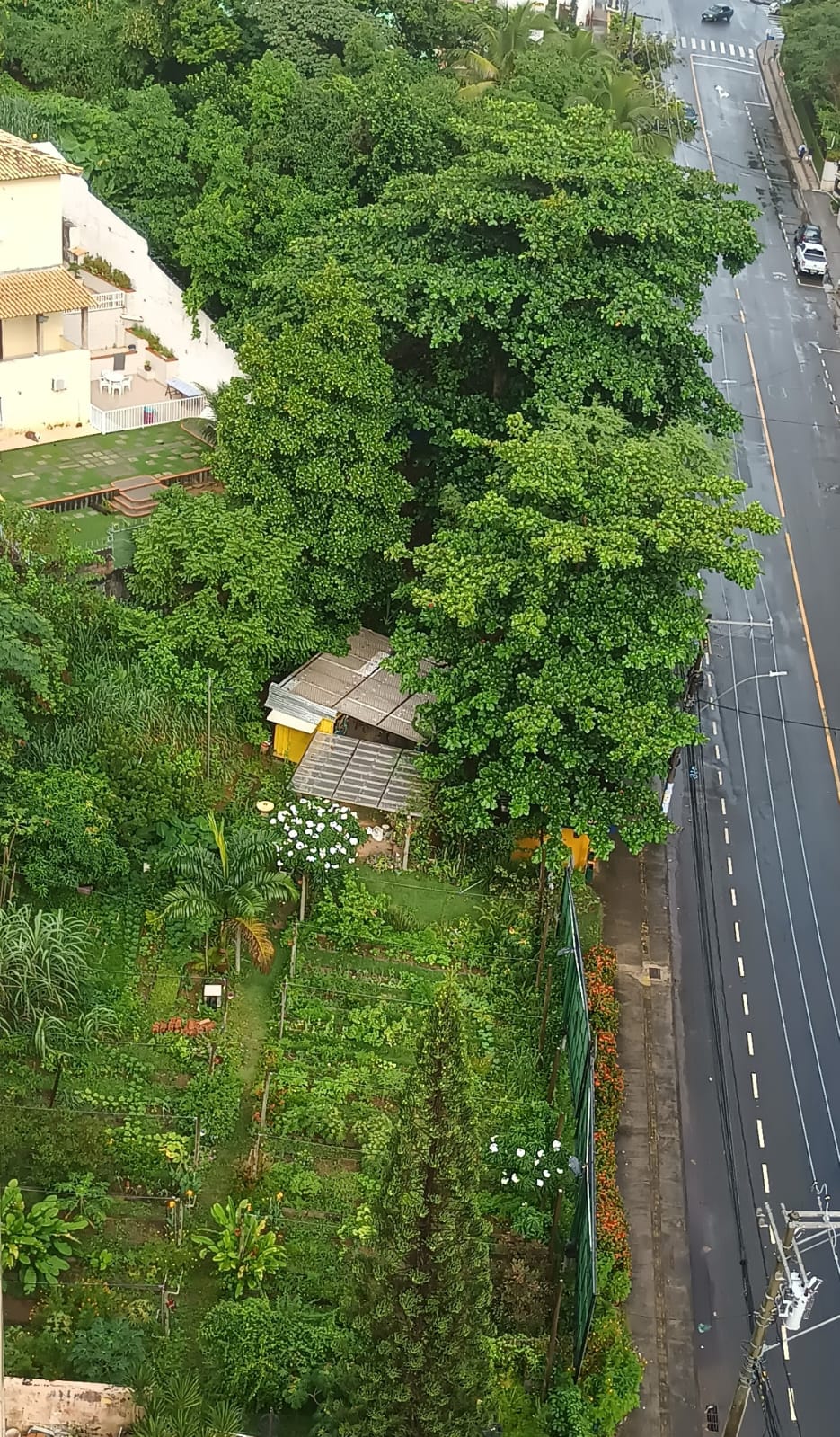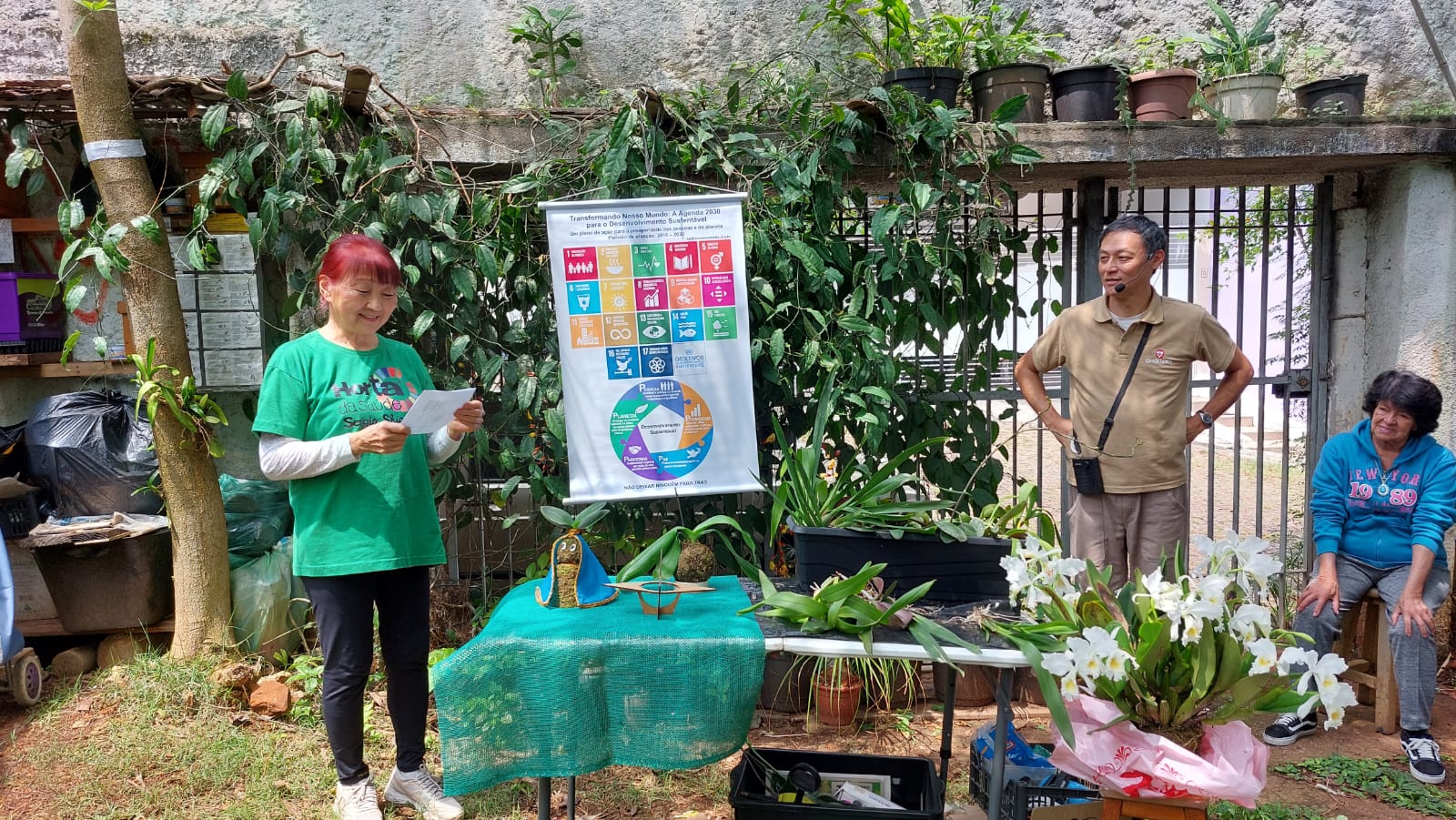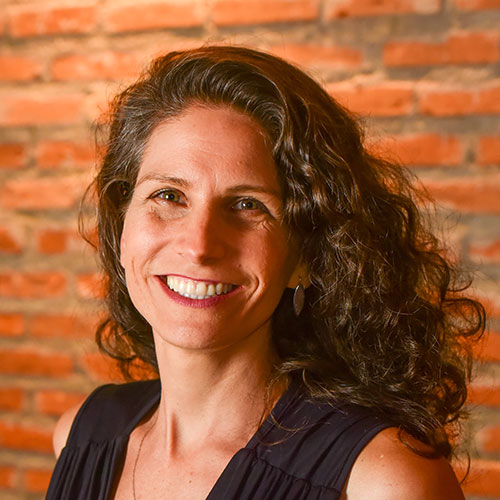Urban agriculture: get inspired by four community gardens in Brazil’s biggest cities
Urban gardens recover degraded areas, guarantee food security and defend the use of territory


With populations increasingly concentrated in urban areas, food production in the city has become essential to democratize access to healthy meals and encourage short market circuits. In addition to ensuring food security, urban gardens expand green spaces, protect water sources, promote sustainable occupation of idle spaces, among other environmental advantages. To find out more details, Lupa do Bem spoke to farmers from four urban gardens in the largest cities in Brazil. Check it out!
Telhado Verde Agroecológico
Located in the Engenho da Rainha neighborhood, north of Rio de Janeiro, the Telhado Verde Agroecológico urban garden is a space of resistance in Serra da Misericórdia. The region, in the vicinity of Complexo do Alemão, has 26 neighborhoods and has been suffering the impacts of economic exploitation and unrestrained occupation. “There is the quarry destroying it on one side, real estate speculation on the other, problems linked to organized crime, so we have tried to defend the mountain with several projects, the vegetable garden is one of them”, says the co-founder Ricardo Devita.
The garden produces, on average, half a ton of agroecological food per month. The products are diverse, with an emphasis on Sicilian lemon, peach palm, pitaya and red fruits. It integrates the Hortas Cariocas Municipal Program, to combat hunger and poverty, in which half of the production is donated to the surrounding residents. The other part of the food is sold in the neighborhood through organic baskets and sold at different marketplaces in the city of Rio de Janeiro.
The objective is to guarantee food security. “In the outskirts, there is a huge food desertification, much more processed and ultra-processed foods are sold in general than fresh foods. So the garden is an alternative to access quality food”, says the co-founder Yuri Zion.
The Telhado Verde Agroecológico garden is part of the Rede Carioca de Agricultura Urbana (Carioca Urban Agriculture Network – Rede CAL), has the Produtos da Gente agroecological seal, is certified organic by BIO and is a member of the Sementes Urbanas da Serra da Misericórdia collective. The garden also forms partnerships with the NGOs Verdejar, Gastromotiva, Sólo Fértil, among others, in addition to offering services for implementing vegetable gardens, vertical gardens, recovery of degraded areas, agroforestry systems and reforestation.
Schools can schedule visits with educational workshops on food production and environmental preservation. For more information, the Instagram profile is @telhadoverdeagroecologico.

Hortas Urbanas Salvador
Wilson Brandão was a successful businessman from Salvador when he decided to close his business to dedicate himself fully to the Hortas Urbanas Salvador project. Created in 2017, the vegetable garden is located in one of the most upscale areas of the capital of Bahia, in the Pituba neighborhood, and occupies an area of 4,800 meters.
He says that the residents of the buildings were renovating their apartments and throwing all the rubble from the construction work on abandoned city hall land close to where they lived. “I spent nine months trying to get approval from the city hall for us to build the garden. The land was public and was being used as a garbage disposal area. The project aimed to give new meaning to that urban space. When we cleaned, we removed 60 tons of rubbish”, recalls Wilson.
Food production is agroecological and includes various fruits, such as banana, soursop, cashew, mango, avocado, jackfruit, sapodilla, cashew, acerola, orange, papaya, fig, plum, among others. There are many non-conventional food plants (PANCS) and medicinal plants: taioba, ora pro nobis, caruru, bredo, lemongrass, lemon balm, melissa, fennel, etc.
The garden still maintains 24 hives of seven different species of native bees. “With this we preserve species, contribute to pollination and combat pests”, he explains. All production is donated to homes for elderly people in Salvador. Currently, six homes are served in total, with an average of 50 elderly people each. In addition to food, the Hortas Urbanas Salvador project also collects cleaning materials, personal hygiene and geriatric diapers for the elderly.
The garden is open to children’s schools and frequently promotes the educational event Prosas e Saberes, open to the general public, where nutritionists and organic farmers are invited to talk about healthy eating.
Due to the pandemic, the garden was inactive for two and a half years and is currently resuming. Therefore, donations and volunteering are very welcome. For more information, the Instagram profile is @projeto_hortas_urbanas_ssa.


Horta Girassol
Horta Girassol emerged in 2005, after a rotavirus outbreak in the city of São Sebastião, Federal District. “We discovered that the outbreak came from rats, so we decided to clean a dump and start a vegetable garden”, recalls urban farmer and president of Instituto Girassol, Hosana Alves do Nascimento.
The garden started with two beds and today occupies one hectare, equivalent to 10 thousand square meters. Half of this space is used to grow vegetables and fruit, fish farming, sheep farming and a community kitchen. In total, ten families participate in the management, in addition to the team of volunteers who help with the joint efforts.
The production is entirely agroecological and its maintenance is carried out through the CSA system (Community that Sustains Agriculture), in which co-farmers pay a monthly quota in exchange for weekly food baskets. The other part of the production is donated to a daycare center, delivered to a cooperative – which sells the food to third parties, or sold at cost to the local community.
The expectation is to transform the garden into a school: “We have a kitchen set up, where we take courses and also process food, so the idea is to be able to transform the garden into an agroecology school to continue with this training”, says Hosana.
For those who wish to participate in the courses, planting or management, the garden usually provides registration links on Instagram.
To find out more, the Instagram profile is @hortagirassol.


Horta da Saúde
The community garden in the Saúde neighborhood, located in the south of São Paulo, completed ten years this November. Environmentalist Sérgio Shigeeda, now deceased, was the one who founded the garden with the help of family members and residents of the region, at the end of 2013. The objective was to give a purpose to an abandoned public space, which contained dirt, garbage, rubble and weeds.
The entire process of implementing the garden was based on permaculture, to promote the preservation of natural resources, food security, agricultural diversity and to publicize PANCs. Thus, Sérgio prioritized sustainable implementation: to set up the garden, materials such as wood, bricks and tiles collected in buckets were reused.
Furthermore, rainwater is collected in cisterns and there is a thermophilic compost bin and worm farm, which treats organic waste generated on site and from pruning in the neighborhood, which is then used as fertilizer. Later he also introduced stingless bees, important pollinators.
The garden has the support of the Vila Mariana sub-prefecture and is maintained by a group of volunteers who live nearby. Management is done three times a week, in the morning. The main focus is on PANCs, such as ora pro nobis, taioba, nasturtium and others.
Even so, cultivation is diverse and includes everything from conventional plants such as lettuce and arugula to medicinal plants, flowers, fruit trees and seasonings. “Most of this food is consumed by the volunteers themselves. We don’t have a large production, but we always leave it here for anyone who wants to take it”, explains urban farmer and CADES Vila Mariana Advisor, Elza Ayako Kusaka.
On the second Sunday of each month, the joint effort takes place, with workshops on different themes. “It’s an opportunity for people to expand their knowledge and learning. A day to celebrate nature together with people who donate a little of their time. All in all, a day full of good conversation, food, music and joy”, says Elza.
For more information, the Instagram profile is @hortacomunitariasaude.


Want to support this cause?
Schedule a visit or contact us via WhatsApp!
Telhado Verde Agroecológico
Rua Sérgio e Silva, 50. Engenho da Rainha. Rio de Janeiro – RJ.
WhatsApp: (21) 97492-7675
Horta Girassol
Special Area, Court 12, Morro Azul. São Sebastião – DF.
WhatsApp: (61) 9998-0973
Hortas Urbanas Salvador
Av. Paulo VI, Pituba. Salvador – BA.
Horta da Saúde
Rua Paracatu 66 (final da Rua Uvaias, metrô Saúde). São Paulo – SP.



